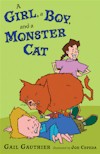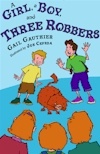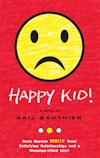
I believe I've mentioned this once or twice before, but in case you missed it, all eight of my published books are out-of-print in paper. But four are "in-print," so to speak, as e-books. (Look to your left. Scroll down a bit. Not too much. There they are.) My publisher published e-book editions of my last three books with the company, as publishers do these days. I got the rights back to one of my older out-of-print books and republished it as an e-book myself.

Well, I received my royalty statement a few days ago, and imagine my surprise to find that all three of the e-books from my publisher have sold some
copies. We're talking a number small enough that I'm not going to
mention it here, but
all three of them sold something. Usually maybe one will sell something during the period the statement covers.

I checked my
Saving the Planet sales on Amazon, and, damn, I'd sold a few e-books there, too. (I think one was to a family member who just got a Kindle.)
Now, in all likelihood, this "surge" in sales is some random event in the universe. Nonetheless, it brought to mind a thought I've had before and may have written about here but, of course, can't find. And that is...
If Traditionally Published Authors Are Out-of-Print In Paper, Should They Market Their E-Books?
In my experience, most authors published by traditional publishers that include an e-book edition with their publication plans (as many do nowadays), treat those e-books as if they don't exist. Paper

and print is all. This makes sense for authors whose paper-and-print books are in print, because they are usually more expensive than the e-books, so a paper-and-print sale is worth more. Additionally, it's easier to support a paper-and-print book with appearances at bookstores and festivals. E-books are invisible. It's hard to make a public appearance for them.
How much do writers focus on paper-and-print books over e-books? I read an article this winter, which, of course, I can't find now, in which a number of pretty well-known authors were asked their opinion on what authors should do when their books go out of print. Try to find another publisher? Republish themselves? Every single one of those people said the equivalent of "Give it up and move on, folks. That horse is dead, don't waste your time beating it. There are other books in the sea waiting for you to write them."
Except...the horse isn't quite dead. There's an e-book edition. And while
e-books aren't big sellers in children's publishing, they do much better in some adult genres. Your book is available for purchase by anyone with an e-reader. For that matter, library users are able to access e-books for their readers through their libraries, so, somehow, libraries or organizations they are connected with buy them. Should you be doing your bit to market them, just as you would to market the print book?
Who Should Consider This Question?
- For authors who are publishing regularly, marketing their print books will probably still be their top interest, because that's where the money is. And, you know, you've moved on. Unless, of course, you have a book out-of-print in print that you really like a lot, and you'd like to see it get more readers. In that case, e-books will be more important to you.
- Then you have authors who publish a book and then find themselves, for whatever reason, out of print before they've found a publisher for book two. But they've got their e-book edition out there, ready for purchase.
- You also have writers who have been published multiple times and then find themselves, for whatever reason, in a long dry spell. They may have multiple e-book editions out there, ready for purchase.
What's To Be Gained By Marketing E-books?
- If you can generate sales of e-books, you can show potential publishers that you're capable of marketing.
- If your print book went out-of-print before it had earned back your advance, your publisher lost money on you. Money generated from e-book sales goes toward that advance. You're showing potential publishers that you're capable of continuing to make money for them, even after your print book is gone.
- If your print book went out-of-print after it had earned back your advance, you'll collect royalties on e-book sales.
How Can Traditionally Published Authors Market "Traditionally" Published E-books?
Well, there's the big money question. You could try looking to self-publishing for a model, but writers who self-publish e-books have control over their books in a way that traditionally published authors don't. They can change the price, for instance, creating sales periods, which traditionally published authors can't do, because the publishing company is the publisher and controls that. Nor can traditionally published authors tinker with any of the Amazon details for their e-books. Again, that's the publisher's business. On top of all that, most self-publishing how-to's for marketing e-books relate to publishing
new e-books. The e-book edition of an out-of-print book could be five, ten, or more years old.
Speaking from experience, I can tell you that it is difficult getting marketing attention for the e-book edition of an out-of-print book. A bazillion books are published every year. The shiny and new get attention.
You probably shouldn't be putting tremendous effort into marketing backlist e-books. Tremendous effort should be going into writing new books to become your future backlist e-books. Go for less labor intensive marketing:
- Make sure your website includes information on how visitors can buy your e-books.
- Make sure visitors to your blog can see your e-books and follow links to purchasing information, too. (Look to your left. Scroll up a bit. Up some more. There they are.)
- Include their images on your Twitter banner.
- Be active on social media. E-book readers curious about you may decide to try out an available e-book. Especially if you have a cheap one.
- Find opportunities to mention your available e-books or use their images. Yes, the way I have in this post.
Whatever you do, don't ever say that your book is
only available as an e-book. There is nothing lesser about e-books.
 I am Facebook Friends with Nancy Springer (which means we're not actually friends or really even know each other), author of the Enola Holmes series, and so I've been aware of an Enola Holmes movie coming up, since Nancy has been passing on news as it became
I am Facebook Friends with Nancy Springer (which means we're not actually friends or really even know each other), author of the Enola Holmes series, and so I've been aware of an Enola Holmes movie coming up, since Nancy has been passing on news as it became 

















